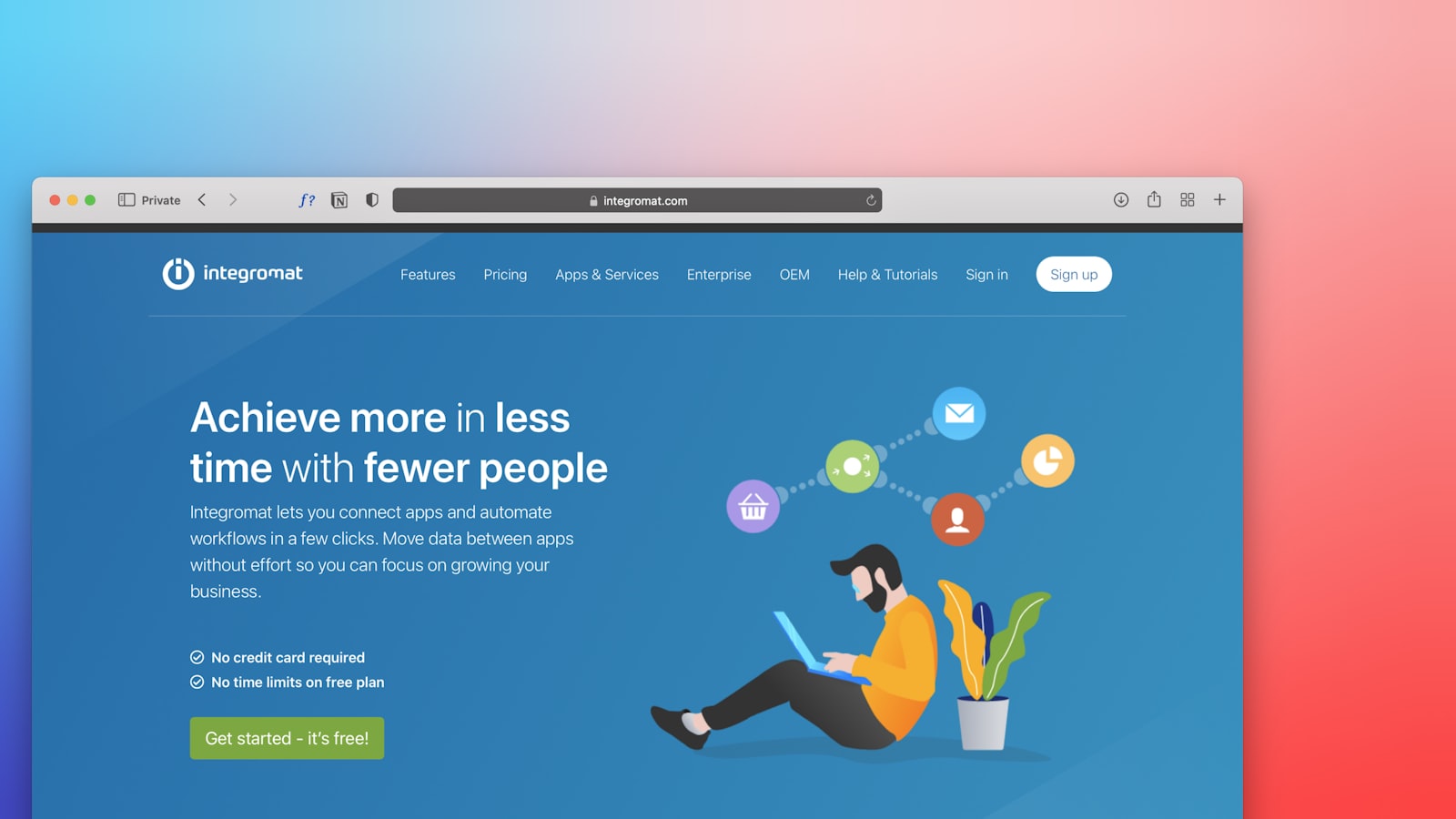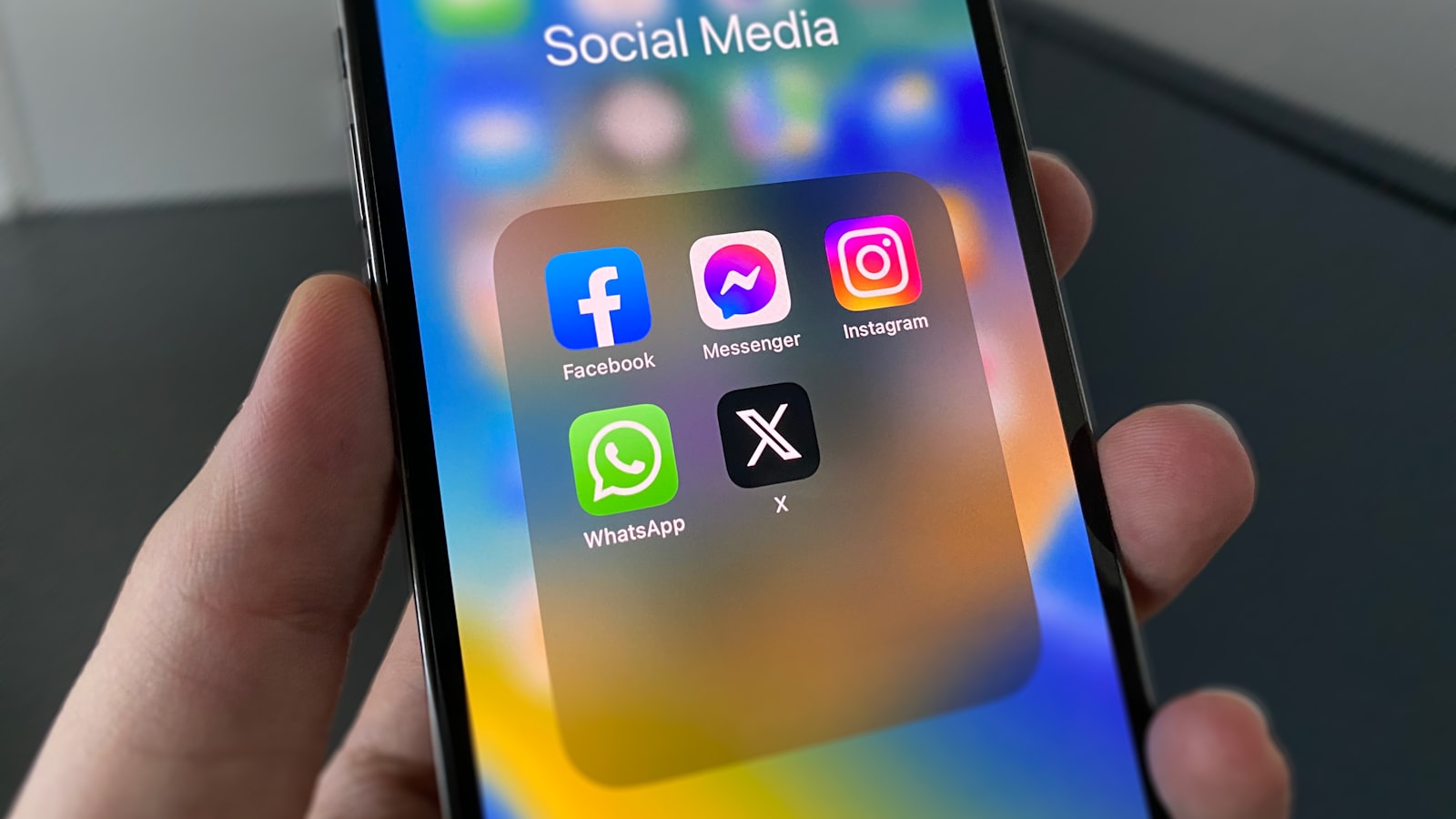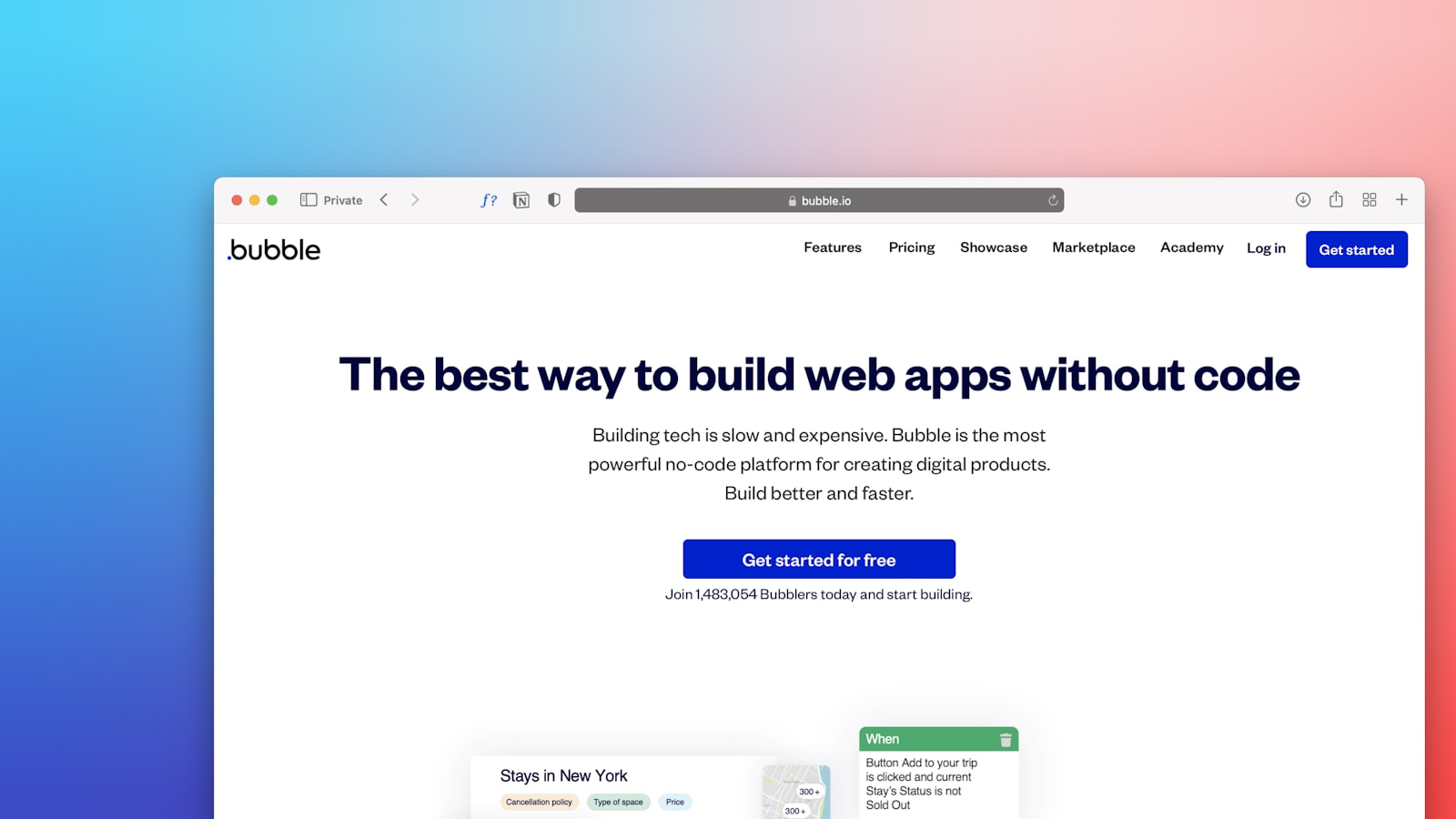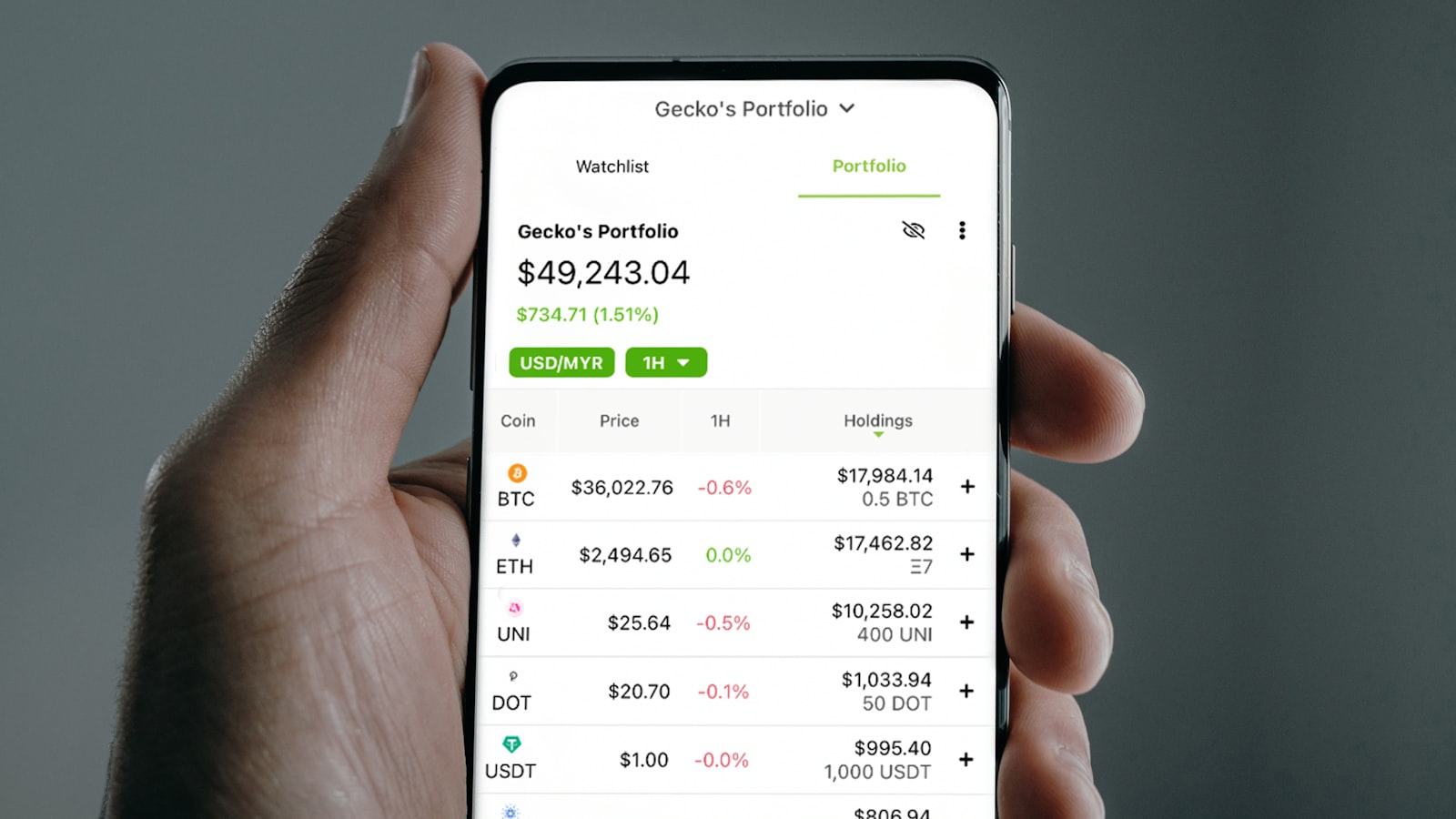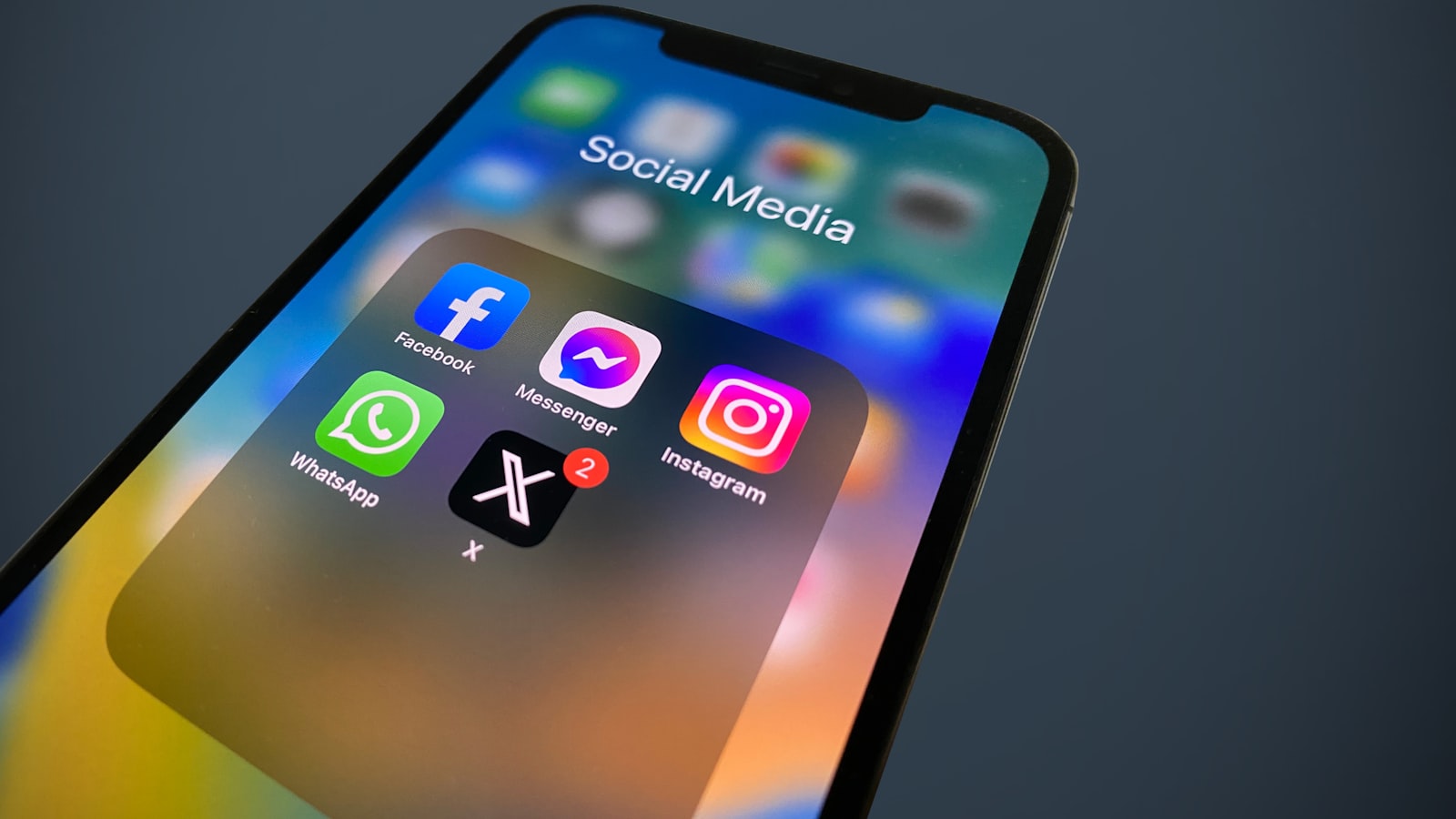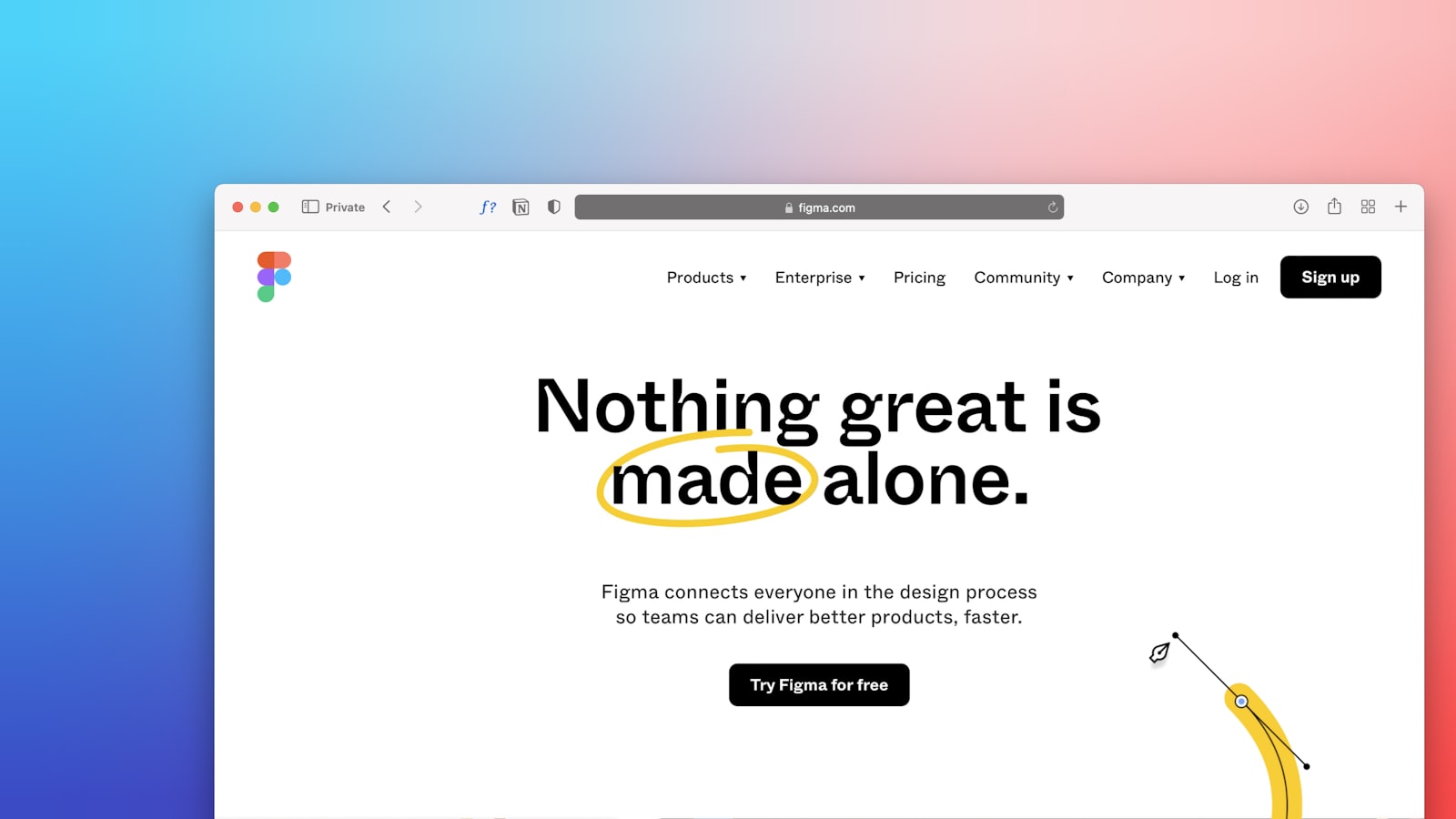Understanding Marketing Qualified Leads (MQLs) in B2B Sales
Understanding Marketing Qualified Leads (MQLs) in B2B Sales
Understanding Marketing Qualified Leads (MQLs) in B2B Sales
Learn the MQL definition and its importance in B2B sales. Understand how Marketing Qualified Leads can boost your business's sales and conversion rates.
Learn the MQL definition and its importance in B2B sales. Understand how Marketing Qualified Leads can boost your business's sales and conversion rates.



Introduction
Importance of Lead Generation in B2B Sales
Alright, let's cut to the chase. If you're in B2B sales and you're not focusing on lead generation, you're basically trying to catch fish without a net. And no, just any lead won't cut it. We're talking about high-quality leads that actually have the potential to convert into sales. That's where Marketing Qualified Leads (MQLs) come in. Think of MQLs as the crème de la crème of leads, the ones who raise their hands and say, Yes, I'm interested! Let's dive into why these leads are so crucial in the B2B landscape.
Overview of Marketing Qualified Leads (MQLs)
So, what exactly is an MQL? Imagine you're at a party, and someone starts talking about how much they love your product. That's an MQL—a lead that has shown interest through specific actions like downloading a whitepaper or filling out a contact form. They’re not just any lead; they're the ones who’ve engaged with your marketing efforts and are more likely to be open to a sales pitch. Understanding the mql definition is key to differentiating these hot prospects from the rest of the crowd. In this article, we'll break down the concept of MQLs, their role in the B2B sales process, and how they differ from other types of leads. Stick around; it's going to be enlightening!
What is a Marketing Qualified Lead (MQL)?
Definition of MQL
A Marketing Qualified Lead (MQL) is a potential customer who has shown interest in your brand's offerings through specific actions driven by marketing efforts. These actions can include:
Submitting contact information
Opting into programs
Adding items to a shopping cart
Downloading materials
Visiting a website repeatedly
MQLs are more likely to be receptive to sales pitches compared to regular leads but have not yet engaged in a sales conversation.
Criteria for Identifying MQLs
Identifying MQLs involves analyzing buyer journeys, demographic data, and customer behaviors. Here are some key criteria:
Engagement with marketing content (e.g., downloading an e-book, attending a webinar)
Frequency of website visits
Interactions with email campaigns
Social media engagement
Form submissions and inquiries
To refine your criteria, look for trends in successful leads and historical behavior. Regularly revisit and update your MQL definitions to adapt to evolving business and customer needs.
Differences Between MQLs, SQLs, and HQLs
Understanding the differences between MQLs, Sales Qualified Leads (SQLs), and Highly Qualified Leads (HQLs) is crucial for effective lead management:
MQLs: Have shown interest through marketing actions but haven't engaged in sales conversations.
SQLs: Have been vetted by the sales team and are considered ready for direct sales engagement.
HQLs: Are highly engaged and show strong intent to purchase, often requiring immediate sales follow-up.
Effective alignment between marketing and sales teams is essential to define and identify these leads accurately. Regular meetings and feedback loops can help refine criteria and improve lead quality.

For more strategies on improving lead quality and conversion rates, check out our article on 10 Strategies for Improving Lead Quality and Conversion Rates.
Additionally, understanding your target audience is key. Learn how to create and leverage B2B buyer personas for targeted marketing in our guide on How to Create and Leverage B2B Buyer Personas for Targeted Marketing.
Why MQLs are Crucial for B2B Sales

Higher Conversion Rates
Marketing Qualified Leads (MQLs) are like the golden tickets in B2B sales. They have already shown interest in your product or service, making them more likely to convert into paying customers. According to a study by HubSpot, companies that focus on MQLs can see a 50% increase in conversion rates compared to those that don't. This means your sales team can spend less time chasing cold leads and more time closing deals.
Better Resource Allocation
Time is money, and nowhere is this truer than in B2B sales. By focusing on MQLs, you're ensuring that your sales team is spending their time on leads that are more likely to convert. This not only boosts efficiency but also maximizes your return on investment (ROI). According to Forrester, companies that excel at lead nurturing generate 50% more sales-ready leads at a 33% lower cost.
Personalized Marketing Strategies
One size does not fit all, especially in B2B marketing. MQLs allow you to tailor your marketing efforts to specific segments of your audience. By understanding the pain points and goals of your leads, you can create personalized marketing campaigns that resonate more deeply. This personalization can lead to higher engagement rates and, ultimately, more conversions.
In summary, focusing on MQLs can significantly improve your conversion rates, optimize your resource allocation, and enable more personalized marketing strategies. These benefits make MQLs an invaluable asset in the B2B sales process.
How to Generate Marketing Qualified Leads
Know Your Target Audience
Defining Your Ideal Customer Profile (ICP)
First things first, you need to know who you’re targeting. Defining your Ideal Customer Profile (ICP) is like creating a detailed sketch of your perfect customer. This includes demographic details, industry, company size, and job roles. Think of it as your marketing GPS, guiding you to the right audience.
Understanding Pain Points and Goals
Once you have your ICP, dive into their world. What keeps them up at night? What are their goals? Understanding their pain points and aspirations helps you craft messages that resonate. This empathy-driven approach not only attracts leads but also builds trust.
Utilize Effective Digital Marketing Channels
SEO and Content Marketing
SEO and content marketing are your bread and butter. Optimize your website and create valuable content that answers your audience's questions. Blog posts, whitepapers, and case studies are excellent tools. For more on this, check out our B2B SaaS SEO tactics.
Social Media Marketing
Social media isn't just for selfies and cat videos. Platforms like LinkedIn and Twitter are gold mines for B2B marketing. Share industry insights, engage with your audience, and join relevant groups to increase your reach.
Email Marketing
Email marketing remains a powerhouse. Segment your email list based on your ICP and tailor your messages to their needs. Personalized emails can significantly boost engagement and conversion rates.
PPC Advertising
Pay-Per-Click (PPC) advertising can give you an immediate visibility boost. Use targeted ads on platforms like Google Ads and LinkedIn to reach your specific audience. For more strategies, visit our guide on competitive SEM tactics.
Create Valuable Content
Types of Content (E-books, Webinars, Blog Posts)
Content is king, but not all content is created equal. E-books, webinars, and blog posts are excellent ways to provide value. Each type serves a different purpose and stage in the buyer’s journey.
Content that Addresses Pain Points and Goals
Your content should be a problem-solver. Address the pain points and goals of your audience. Offer solutions, insights, and actionable advice. This not only attracts leads but also positions you as an industry expert.
Optimize Conversion Paths
Clear Calls-to-Action (CTAs)
Your content should always lead somewhere. Clear, compelling CTAs guide your audience to the next step, whether it’s downloading a resource, signing up for a webinar, or contacting sales.
User-Friendly Landing Pages
Landing pages are your conversion hubs. They should be simple, focused, and user-friendly. A clutter-free design with a clear value proposition can significantly increase conversion rates. For more tips, see our article on improving lead quality and conversion rates.
Lead Capture Forms
Lead capture forms are your ticket to collecting valuable information. Keep them short and sweet. Ask for essential details only to reduce friction and increase submissions.

By following these strategies, you can effectively generate Marketing Qualified Leads and set your B2B sales team up for success. Remember, the goal is to attract the right leads, engage them with valuable content, and guide them smoothly through the conversion path.
Lead Scoring and Nurturing MQLs
Implementing Lead Scoring Systems
Criteria for Scoring Leads
Lead scoring assigns numerical values to potential buyers based on their engagement and attributes. Here's what you need to consider:
Demographic Information: Age, job title, industry, and company size.
Behavioral Data: Website visits, email opens, and content downloads.
Firmographic Data: Company revenue, number of employees, and location.
Engagement Level: Interaction frequency with your brand.
Using Marketing Automation Tools
Marketing automation tools can streamline lead scoring by automatically assigning scores based on predefined criteria. Popular tools include:
HubSpot: Offers robust lead scoring features integrated with CRM.
Marketo: Known for its advanced scoring algorithms and analytics.
Pardot: Ideal for B2B companies looking to integrate with Salesforce.
These tools help in segmenting leads and prioritizing follow-ups, ensuring that your sales team focuses on the most promising prospects.
Strategies for Nurturing Leads
Personalized Email Campaigns
Personalized email campaigns are a powerful way to nurture MQLs. Tailor your emails based on:
Lead's Interests: Send content that matches their preferences and past behavior.
Stage in the Buyer’s Journey: Provide relevant information that moves them closer to a purchase.
Behavioral Triggers: Automated emails based on specific actions like downloading an e-book or attending a webinar.
Retargeting Ads
Retargeting ads keep your brand in front of leads who have shown interest but haven't converted yet. Use platforms like Google Ads and Facebook to:
Display Relevant Ads: Show ads related to the content they interacted with.
Segment Audiences: Target specific groups based on their behavior and demographics.
Measure Effectiveness: Track the performance of your retargeting campaigns and adjust as needed.
Continuous Engagement through Valuable Content
Keep your leads engaged by providing continuous value through various content formats:
Blog Posts: Regularly publish articles that address common pain points and offer solutions.
E-books and White Papers: Provide in-depth insights and valuable information that helps leads make informed decisions.
Webinars: Host live sessions to interact with leads and answer their questions in real-time.
For more strategies on improving lead quality and conversion rates, check out our 10 Strategies for Improving Lead Quality and Conversion Rates.
Measuring the Success of Your MQL Strategy

Key Performance Indicators (KPIs)
MQL to SQL Conversion Rate
The MQL to SQL conversion rate is a critical metric that shows the effectiveness of your lead nurturing process. It measures how many Marketing Qualified Leads (MQLs) transition to Sales Qualified Leads (SQLs). A higher conversion rate indicates that your marketing efforts are successfully generating leads that are ready for the sales team.
Cost Per MQL
Understanding the cost per MQL helps you gauge the efficiency of your marketing spend. This metric calculates the total marketing expenses divided by the number of MQLs generated. Lowering this cost without compromising lead quality can significantly improve your overall return on investment (ROI).
Customer Lifetime Value (CLV)
Customer Lifetime Value (CLV) is a projection of the total revenue a business can expect from a single customer account. By comparing the CLV of leads that started as MQLs, you can assess the long-term value of your marketing efforts. High CLV indicates that your MQLs are not just converting but also staying loyal and generating ongoing revenue.
Speed to Lead
Speed to Lead measures the time it takes for a sales representative to follow up with a new MQL. Faster response times generally lead to higher conversion rates. Implementing automated alerts and CRM tasks can help ensure timely follow-ups, improving your chances of converting MQLs to SQLs.
Calculating ROI
Customer Acquisition Cost (CAC)
Customer Acquisition Cost (CAC) is the total cost of acquiring a new customer, including all marketing and sales expenses. To calculate CAC, divide the total costs by the number of new customers acquired. Keeping CAC low while maintaining high-quality leads is essential for a profitable MQL strategy.
Break-Even Analysis
Break-even analysis helps you determine when your marketing investments will start generating profit. By comparing the CAC with the CLV, you can identify the point at which the revenue from new customers covers the cost of acquiring them. This analysis is crucial for understanding the financial viability of your MQL strategy.
For more strategies on improving lead quality and conversion rates, check out our 10 Strategies for Improving Lead Quality and Conversion Rates. Additionally, learn how to develop a high-performing lead generation strategy by visiting How to Develop a High-Performing SaaS Lead Generation Strategy.
Conclusion
Recap of Key Points
We've covered a lot of ground in understanding Marketing Qualified Leads (MQLs) and their significance in B2B sales. Let's quickly revisit the essential points:
Definition of MQL: MQLs are leads that have shown interest in your product or service and are more likely to become customers compared to other leads.
Criteria for Identifying MQLs: These include specific actions like downloading a whitepaper, attending a webinar, or frequent website visits.
Differences Between MQLs, SQLs, and HQLs: Understanding the distinctions helps in targeting and nurturing leads effectively.
Importance of MQLs: Higher conversion rates, better resource allocation, and personalized marketing strategies.
Generating MQLs: Knowing your target audience, utilizing effective digital marketing channels, creating valuable content, and optimizing conversion paths.
Lead Scoring and Nurturing: Implementing lead scoring systems and strategies for nurturing leads.
Measuring Success: Key performance indicators (KPIs) and calculating ROI to measure the success of your MQL strategy.
Final Thoughts on the Importance of MQLs in B2B Sales
In the realm of B2B sales, understanding and leveraging MQLs can be a game-changer. By focusing on leads that are more likely to convert, businesses can allocate their resources more efficiently, tailor their marketing strategies, and ultimately drive more revenue. For more insights on improving lead quality and conversion rates, check out our article on 10 Strategies for Improving Lead Quality and Conversion Rates. Additionally, developing a high-performing lead generation strategy is crucial. For detailed guidance, visit our guide on How to Develop a High-Performing SaaS Lead Generation Strategy. And if you're looking to create and leverage B2B buyer personas for targeted marketing, don't miss our comprehensive article on How to Create and Leverage B2B Buyer Personas for Targeted Marketing.
Remember, the key to successful B2B sales lies in understanding your leads and nurturing them effectively. By focusing on MQLs, you're setting your business up for long-term success.

Introduction
Importance of Lead Generation in B2B Sales
Alright, let's cut to the chase. If you're in B2B sales and you're not focusing on lead generation, you're basically trying to catch fish without a net. And no, just any lead won't cut it. We're talking about high-quality leads that actually have the potential to convert into sales. That's where Marketing Qualified Leads (MQLs) come in. Think of MQLs as the crème de la crème of leads, the ones who raise their hands and say, Yes, I'm interested! Let's dive into why these leads are so crucial in the B2B landscape.
Overview of Marketing Qualified Leads (MQLs)
So, what exactly is an MQL? Imagine you're at a party, and someone starts talking about how much they love your product. That's an MQL—a lead that has shown interest through specific actions like downloading a whitepaper or filling out a contact form. They’re not just any lead; they're the ones who’ve engaged with your marketing efforts and are more likely to be open to a sales pitch. Understanding the mql definition is key to differentiating these hot prospects from the rest of the crowd. In this article, we'll break down the concept of MQLs, their role in the B2B sales process, and how they differ from other types of leads. Stick around; it's going to be enlightening!
What is a Marketing Qualified Lead (MQL)?
Definition of MQL
A Marketing Qualified Lead (MQL) is a potential customer who has shown interest in your brand's offerings through specific actions driven by marketing efforts. These actions can include:
Submitting contact information
Opting into programs
Adding items to a shopping cart
Downloading materials
Visiting a website repeatedly
MQLs are more likely to be receptive to sales pitches compared to regular leads but have not yet engaged in a sales conversation.
Criteria for Identifying MQLs
Identifying MQLs involves analyzing buyer journeys, demographic data, and customer behaviors. Here are some key criteria:
Engagement with marketing content (e.g., downloading an e-book, attending a webinar)
Frequency of website visits
Interactions with email campaigns
Social media engagement
Form submissions and inquiries
To refine your criteria, look for trends in successful leads and historical behavior. Regularly revisit and update your MQL definitions to adapt to evolving business and customer needs.
Differences Between MQLs, SQLs, and HQLs
Understanding the differences between MQLs, Sales Qualified Leads (SQLs), and Highly Qualified Leads (HQLs) is crucial for effective lead management:
MQLs: Have shown interest through marketing actions but haven't engaged in sales conversations.
SQLs: Have been vetted by the sales team and are considered ready for direct sales engagement.
HQLs: Are highly engaged and show strong intent to purchase, often requiring immediate sales follow-up.
Effective alignment between marketing and sales teams is essential to define and identify these leads accurately. Regular meetings and feedback loops can help refine criteria and improve lead quality.

For more strategies on improving lead quality and conversion rates, check out our article on 10 Strategies for Improving Lead Quality and Conversion Rates.
Additionally, understanding your target audience is key. Learn how to create and leverage B2B buyer personas for targeted marketing in our guide on How to Create and Leverage B2B Buyer Personas for Targeted Marketing.
Why MQLs are Crucial for B2B Sales

Higher Conversion Rates
Marketing Qualified Leads (MQLs) are like the golden tickets in B2B sales. They have already shown interest in your product or service, making them more likely to convert into paying customers. According to a study by HubSpot, companies that focus on MQLs can see a 50% increase in conversion rates compared to those that don't. This means your sales team can spend less time chasing cold leads and more time closing deals.
Better Resource Allocation
Time is money, and nowhere is this truer than in B2B sales. By focusing on MQLs, you're ensuring that your sales team is spending their time on leads that are more likely to convert. This not only boosts efficiency but also maximizes your return on investment (ROI). According to Forrester, companies that excel at lead nurturing generate 50% more sales-ready leads at a 33% lower cost.
Personalized Marketing Strategies
One size does not fit all, especially in B2B marketing. MQLs allow you to tailor your marketing efforts to specific segments of your audience. By understanding the pain points and goals of your leads, you can create personalized marketing campaigns that resonate more deeply. This personalization can lead to higher engagement rates and, ultimately, more conversions.
In summary, focusing on MQLs can significantly improve your conversion rates, optimize your resource allocation, and enable more personalized marketing strategies. These benefits make MQLs an invaluable asset in the B2B sales process.
How to Generate Marketing Qualified Leads
Know Your Target Audience
Defining Your Ideal Customer Profile (ICP)
First things first, you need to know who you’re targeting. Defining your Ideal Customer Profile (ICP) is like creating a detailed sketch of your perfect customer. This includes demographic details, industry, company size, and job roles. Think of it as your marketing GPS, guiding you to the right audience.
Understanding Pain Points and Goals
Once you have your ICP, dive into their world. What keeps them up at night? What are their goals? Understanding their pain points and aspirations helps you craft messages that resonate. This empathy-driven approach not only attracts leads but also builds trust.
Utilize Effective Digital Marketing Channels
SEO and Content Marketing
SEO and content marketing are your bread and butter. Optimize your website and create valuable content that answers your audience's questions. Blog posts, whitepapers, and case studies are excellent tools. For more on this, check out our B2B SaaS SEO tactics.
Social Media Marketing
Social media isn't just for selfies and cat videos. Platforms like LinkedIn and Twitter are gold mines for B2B marketing. Share industry insights, engage with your audience, and join relevant groups to increase your reach.
Email Marketing
Email marketing remains a powerhouse. Segment your email list based on your ICP and tailor your messages to their needs. Personalized emails can significantly boost engagement and conversion rates.
PPC Advertising
Pay-Per-Click (PPC) advertising can give you an immediate visibility boost. Use targeted ads on platforms like Google Ads and LinkedIn to reach your specific audience. For more strategies, visit our guide on competitive SEM tactics.
Create Valuable Content
Types of Content (E-books, Webinars, Blog Posts)
Content is king, but not all content is created equal. E-books, webinars, and blog posts are excellent ways to provide value. Each type serves a different purpose and stage in the buyer’s journey.
Content that Addresses Pain Points and Goals
Your content should be a problem-solver. Address the pain points and goals of your audience. Offer solutions, insights, and actionable advice. This not only attracts leads but also positions you as an industry expert.
Optimize Conversion Paths
Clear Calls-to-Action (CTAs)
Your content should always lead somewhere. Clear, compelling CTAs guide your audience to the next step, whether it’s downloading a resource, signing up for a webinar, or contacting sales.
User-Friendly Landing Pages
Landing pages are your conversion hubs. They should be simple, focused, and user-friendly. A clutter-free design with a clear value proposition can significantly increase conversion rates. For more tips, see our article on improving lead quality and conversion rates.
Lead Capture Forms
Lead capture forms are your ticket to collecting valuable information. Keep them short and sweet. Ask for essential details only to reduce friction and increase submissions.

By following these strategies, you can effectively generate Marketing Qualified Leads and set your B2B sales team up for success. Remember, the goal is to attract the right leads, engage them with valuable content, and guide them smoothly through the conversion path.
Lead Scoring and Nurturing MQLs
Implementing Lead Scoring Systems
Criteria for Scoring Leads
Lead scoring assigns numerical values to potential buyers based on their engagement and attributes. Here's what you need to consider:
Demographic Information: Age, job title, industry, and company size.
Behavioral Data: Website visits, email opens, and content downloads.
Firmographic Data: Company revenue, number of employees, and location.
Engagement Level: Interaction frequency with your brand.
Using Marketing Automation Tools
Marketing automation tools can streamline lead scoring by automatically assigning scores based on predefined criteria. Popular tools include:
HubSpot: Offers robust lead scoring features integrated with CRM.
Marketo: Known for its advanced scoring algorithms and analytics.
Pardot: Ideal for B2B companies looking to integrate with Salesforce.
These tools help in segmenting leads and prioritizing follow-ups, ensuring that your sales team focuses on the most promising prospects.
Strategies for Nurturing Leads
Personalized Email Campaigns
Personalized email campaigns are a powerful way to nurture MQLs. Tailor your emails based on:
Lead's Interests: Send content that matches their preferences and past behavior.
Stage in the Buyer’s Journey: Provide relevant information that moves them closer to a purchase.
Behavioral Triggers: Automated emails based on specific actions like downloading an e-book or attending a webinar.
Retargeting Ads
Retargeting ads keep your brand in front of leads who have shown interest but haven't converted yet. Use platforms like Google Ads and Facebook to:
Display Relevant Ads: Show ads related to the content they interacted with.
Segment Audiences: Target specific groups based on their behavior and demographics.
Measure Effectiveness: Track the performance of your retargeting campaigns and adjust as needed.
Continuous Engagement through Valuable Content
Keep your leads engaged by providing continuous value through various content formats:
Blog Posts: Regularly publish articles that address common pain points and offer solutions.
E-books and White Papers: Provide in-depth insights and valuable information that helps leads make informed decisions.
Webinars: Host live sessions to interact with leads and answer their questions in real-time.
For more strategies on improving lead quality and conversion rates, check out our 10 Strategies for Improving Lead Quality and Conversion Rates.
Measuring the Success of Your MQL Strategy

Key Performance Indicators (KPIs)
MQL to SQL Conversion Rate
The MQL to SQL conversion rate is a critical metric that shows the effectiveness of your lead nurturing process. It measures how many Marketing Qualified Leads (MQLs) transition to Sales Qualified Leads (SQLs). A higher conversion rate indicates that your marketing efforts are successfully generating leads that are ready for the sales team.
Cost Per MQL
Understanding the cost per MQL helps you gauge the efficiency of your marketing spend. This metric calculates the total marketing expenses divided by the number of MQLs generated. Lowering this cost without compromising lead quality can significantly improve your overall return on investment (ROI).
Customer Lifetime Value (CLV)
Customer Lifetime Value (CLV) is a projection of the total revenue a business can expect from a single customer account. By comparing the CLV of leads that started as MQLs, you can assess the long-term value of your marketing efforts. High CLV indicates that your MQLs are not just converting but also staying loyal and generating ongoing revenue.
Speed to Lead
Speed to Lead measures the time it takes for a sales representative to follow up with a new MQL. Faster response times generally lead to higher conversion rates. Implementing automated alerts and CRM tasks can help ensure timely follow-ups, improving your chances of converting MQLs to SQLs.
Calculating ROI
Customer Acquisition Cost (CAC)
Customer Acquisition Cost (CAC) is the total cost of acquiring a new customer, including all marketing and sales expenses. To calculate CAC, divide the total costs by the number of new customers acquired. Keeping CAC low while maintaining high-quality leads is essential for a profitable MQL strategy.
Break-Even Analysis
Break-even analysis helps you determine when your marketing investments will start generating profit. By comparing the CAC with the CLV, you can identify the point at which the revenue from new customers covers the cost of acquiring them. This analysis is crucial for understanding the financial viability of your MQL strategy.
For more strategies on improving lead quality and conversion rates, check out our 10 Strategies for Improving Lead Quality and Conversion Rates. Additionally, learn how to develop a high-performing lead generation strategy by visiting How to Develop a High-Performing SaaS Lead Generation Strategy.
Conclusion
Recap of Key Points
We've covered a lot of ground in understanding Marketing Qualified Leads (MQLs) and their significance in B2B sales. Let's quickly revisit the essential points:
Definition of MQL: MQLs are leads that have shown interest in your product or service and are more likely to become customers compared to other leads.
Criteria for Identifying MQLs: These include specific actions like downloading a whitepaper, attending a webinar, or frequent website visits.
Differences Between MQLs, SQLs, and HQLs: Understanding the distinctions helps in targeting and nurturing leads effectively.
Importance of MQLs: Higher conversion rates, better resource allocation, and personalized marketing strategies.
Generating MQLs: Knowing your target audience, utilizing effective digital marketing channels, creating valuable content, and optimizing conversion paths.
Lead Scoring and Nurturing: Implementing lead scoring systems and strategies for nurturing leads.
Measuring Success: Key performance indicators (KPIs) and calculating ROI to measure the success of your MQL strategy.
Final Thoughts on the Importance of MQLs in B2B Sales
In the realm of B2B sales, understanding and leveraging MQLs can be a game-changer. By focusing on leads that are more likely to convert, businesses can allocate their resources more efficiently, tailor their marketing strategies, and ultimately drive more revenue. For more insights on improving lead quality and conversion rates, check out our article on 10 Strategies for Improving Lead Quality and Conversion Rates. Additionally, developing a high-performing lead generation strategy is crucial. For detailed guidance, visit our guide on How to Develop a High-Performing SaaS Lead Generation Strategy. And if you're looking to create and leverage B2B buyer personas for targeted marketing, don't miss our comprehensive article on How to Create and Leverage B2B Buyer Personas for Targeted Marketing.
Remember, the key to successful B2B sales lies in understanding your leads and nurturing them effectively. By focusing on MQLs, you're setting your business up for long-term success.

Introduction
Importance of Lead Generation in B2B Sales
Alright, let's cut to the chase. If you're in B2B sales and you're not focusing on lead generation, you're basically trying to catch fish without a net. And no, just any lead won't cut it. We're talking about high-quality leads that actually have the potential to convert into sales. That's where Marketing Qualified Leads (MQLs) come in. Think of MQLs as the crème de la crème of leads, the ones who raise their hands and say, Yes, I'm interested! Let's dive into why these leads are so crucial in the B2B landscape.
Overview of Marketing Qualified Leads (MQLs)
So, what exactly is an MQL? Imagine you're at a party, and someone starts talking about how much they love your product. That's an MQL—a lead that has shown interest through specific actions like downloading a whitepaper or filling out a contact form. They’re not just any lead; they're the ones who’ve engaged with your marketing efforts and are more likely to be open to a sales pitch. Understanding the mql definition is key to differentiating these hot prospects from the rest of the crowd. In this article, we'll break down the concept of MQLs, their role in the B2B sales process, and how they differ from other types of leads. Stick around; it's going to be enlightening!
What is a Marketing Qualified Lead (MQL)?
Definition of MQL
A Marketing Qualified Lead (MQL) is a potential customer who has shown interest in your brand's offerings through specific actions driven by marketing efforts. These actions can include:
Submitting contact information
Opting into programs
Adding items to a shopping cart
Downloading materials
Visiting a website repeatedly
MQLs are more likely to be receptive to sales pitches compared to regular leads but have not yet engaged in a sales conversation.
Criteria for Identifying MQLs
Identifying MQLs involves analyzing buyer journeys, demographic data, and customer behaviors. Here are some key criteria:
Engagement with marketing content (e.g., downloading an e-book, attending a webinar)
Frequency of website visits
Interactions with email campaigns
Social media engagement
Form submissions and inquiries
To refine your criteria, look for trends in successful leads and historical behavior. Regularly revisit and update your MQL definitions to adapt to evolving business and customer needs.
Differences Between MQLs, SQLs, and HQLs
Understanding the differences between MQLs, Sales Qualified Leads (SQLs), and Highly Qualified Leads (HQLs) is crucial for effective lead management:
MQLs: Have shown interest through marketing actions but haven't engaged in sales conversations.
SQLs: Have been vetted by the sales team and are considered ready for direct sales engagement.
HQLs: Are highly engaged and show strong intent to purchase, often requiring immediate sales follow-up.
Effective alignment between marketing and sales teams is essential to define and identify these leads accurately. Regular meetings and feedback loops can help refine criteria and improve lead quality.

For more strategies on improving lead quality and conversion rates, check out our article on 10 Strategies for Improving Lead Quality and Conversion Rates.
Additionally, understanding your target audience is key. Learn how to create and leverage B2B buyer personas for targeted marketing in our guide on How to Create and Leverage B2B Buyer Personas for Targeted Marketing.
Why MQLs are Crucial for B2B Sales

Higher Conversion Rates
Marketing Qualified Leads (MQLs) are like the golden tickets in B2B sales. They have already shown interest in your product or service, making them more likely to convert into paying customers. According to a study by HubSpot, companies that focus on MQLs can see a 50% increase in conversion rates compared to those that don't. This means your sales team can spend less time chasing cold leads and more time closing deals.
Better Resource Allocation
Time is money, and nowhere is this truer than in B2B sales. By focusing on MQLs, you're ensuring that your sales team is spending their time on leads that are more likely to convert. This not only boosts efficiency but also maximizes your return on investment (ROI). According to Forrester, companies that excel at lead nurturing generate 50% more sales-ready leads at a 33% lower cost.
Personalized Marketing Strategies
One size does not fit all, especially in B2B marketing. MQLs allow you to tailor your marketing efforts to specific segments of your audience. By understanding the pain points and goals of your leads, you can create personalized marketing campaigns that resonate more deeply. This personalization can lead to higher engagement rates and, ultimately, more conversions.
In summary, focusing on MQLs can significantly improve your conversion rates, optimize your resource allocation, and enable more personalized marketing strategies. These benefits make MQLs an invaluable asset in the B2B sales process.
How to Generate Marketing Qualified Leads
Know Your Target Audience
Defining Your Ideal Customer Profile (ICP)
First things first, you need to know who you’re targeting. Defining your Ideal Customer Profile (ICP) is like creating a detailed sketch of your perfect customer. This includes demographic details, industry, company size, and job roles. Think of it as your marketing GPS, guiding you to the right audience.
Understanding Pain Points and Goals
Once you have your ICP, dive into their world. What keeps them up at night? What are their goals? Understanding their pain points and aspirations helps you craft messages that resonate. This empathy-driven approach not only attracts leads but also builds trust.
Utilize Effective Digital Marketing Channels
SEO and Content Marketing
SEO and content marketing are your bread and butter. Optimize your website and create valuable content that answers your audience's questions. Blog posts, whitepapers, and case studies are excellent tools. For more on this, check out our B2B SaaS SEO tactics.
Social Media Marketing
Social media isn't just for selfies and cat videos. Platforms like LinkedIn and Twitter are gold mines for B2B marketing. Share industry insights, engage with your audience, and join relevant groups to increase your reach.
Email Marketing
Email marketing remains a powerhouse. Segment your email list based on your ICP and tailor your messages to their needs. Personalized emails can significantly boost engagement and conversion rates.
PPC Advertising
Pay-Per-Click (PPC) advertising can give you an immediate visibility boost. Use targeted ads on platforms like Google Ads and LinkedIn to reach your specific audience. For more strategies, visit our guide on competitive SEM tactics.
Create Valuable Content
Types of Content (E-books, Webinars, Blog Posts)
Content is king, but not all content is created equal. E-books, webinars, and blog posts are excellent ways to provide value. Each type serves a different purpose and stage in the buyer’s journey.
Content that Addresses Pain Points and Goals
Your content should be a problem-solver. Address the pain points and goals of your audience. Offer solutions, insights, and actionable advice. This not only attracts leads but also positions you as an industry expert.
Optimize Conversion Paths
Clear Calls-to-Action (CTAs)
Your content should always lead somewhere. Clear, compelling CTAs guide your audience to the next step, whether it’s downloading a resource, signing up for a webinar, or contacting sales.
User-Friendly Landing Pages
Landing pages are your conversion hubs. They should be simple, focused, and user-friendly. A clutter-free design with a clear value proposition can significantly increase conversion rates. For more tips, see our article on improving lead quality and conversion rates.
Lead Capture Forms
Lead capture forms are your ticket to collecting valuable information. Keep them short and sweet. Ask for essential details only to reduce friction and increase submissions.

By following these strategies, you can effectively generate Marketing Qualified Leads and set your B2B sales team up for success. Remember, the goal is to attract the right leads, engage them with valuable content, and guide them smoothly through the conversion path.
Lead Scoring and Nurturing MQLs
Implementing Lead Scoring Systems
Criteria for Scoring Leads
Lead scoring assigns numerical values to potential buyers based on their engagement and attributes. Here's what you need to consider:
Demographic Information: Age, job title, industry, and company size.
Behavioral Data: Website visits, email opens, and content downloads.
Firmographic Data: Company revenue, number of employees, and location.
Engagement Level: Interaction frequency with your brand.
Using Marketing Automation Tools
Marketing automation tools can streamline lead scoring by automatically assigning scores based on predefined criteria. Popular tools include:
HubSpot: Offers robust lead scoring features integrated with CRM.
Marketo: Known for its advanced scoring algorithms and analytics.
Pardot: Ideal for B2B companies looking to integrate with Salesforce.
These tools help in segmenting leads and prioritizing follow-ups, ensuring that your sales team focuses on the most promising prospects.
Strategies for Nurturing Leads
Personalized Email Campaigns
Personalized email campaigns are a powerful way to nurture MQLs. Tailor your emails based on:
Lead's Interests: Send content that matches their preferences and past behavior.
Stage in the Buyer’s Journey: Provide relevant information that moves them closer to a purchase.
Behavioral Triggers: Automated emails based on specific actions like downloading an e-book or attending a webinar.
Retargeting Ads
Retargeting ads keep your brand in front of leads who have shown interest but haven't converted yet. Use platforms like Google Ads and Facebook to:
Display Relevant Ads: Show ads related to the content they interacted with.
Segment Audiences: Target specific groups based on their behavior and demographics.
Measure Effectiveness: Track the performance of your retargeting campaigns and adjust as needed.
Continuous Engagement through Valuable Content
Keep your leads engaged by providing continuous value through various content formats:
Blog Posts: Regularly publish articles that address common pain points and offer solutions.
E-books and White Papers: Provide in-depth insights and valuable information that helps leads make informed decisions.
Webinars: Host live sessions to interact with leads and answer their questions in real-time.
For more strategies on improving lead quality and conversion rates, check out our 10 Strategies for Improving Lead Quality and Conversion Rates.
Measuring the Success of Your MQL Strategy

Key Performance Indicators (KPIs)
MQL to SQL Conversion Rate
The MQL to SQL conversion rate is a critical metric that shows the effectiveness of your lead nurturing process. It measures how many Marketing Qualified Leads (MQLs) transition to Sales Qualified Leads (SQLs). A higher conversion rate indicates that your marketing efforts are successfully generating leads that are ready for the sales team.
Cost Per MQL
Understanding the cost per MQL helps you gauge the efficiency of your marketing spend. This metric calculates the total marketing expenses divided by the number of MQLs generated. Lowering this cost without compromising lead quality can significantly improve your overall return on investment (ROI).
Customer Lifetime Value (CLV)
Customer Lifetime Value (CLV) is a projection of the total revenue a business can expect from a single customer account. By comparing the CLV of leads that started as MQLs, you can assess the long-term value of your marketing efforts. High CLV indicates that your MQLs are not just converting but also staying loyal and generating ongoing revenue.
Speed to Lead
Speed to Lead measures the time it takes for a sales representative to follow up with a new MQL. Faster response times generally lead to higher conversion rates. Implementing automated alerts and CRM tasks can help ensure timely follow-ups, improving your chances of converting MQLs to SQLs.
Calculating ROI
Customer Acquisition Cost (CAC)
Customer Acquisition Cost (CAC) is the total cost of acquiring a new customer, including all marketing and sales expenses. To calculate CAC, divide the total costs by the number of new customers acquired. Keeping CAC low while maintaining high-quality leads is essential for a profitable MQL strategy.
Break-Even Analysis
Break-even analysis helps you determine when your marketing investments will start generating profit. By comparing the CAC with the CLV, you can identify the point at which the revenue from new customers covers the cost of acquiring them. This analysis is crucial for understanding the financial viability of your MQL strategy.
For more strategies on improving lead quality and conversion rates, check out our 10 Strategies for Improving Lead Quality and Conversion Rates. Additionally, learn how to develop a high-performing lead generation strategy by visiting How to Develop a High-Performing SaaS Lead Generation Strategy.
Conclusion
Recap of Key Points
We've covered a lot of ground in understanding Marketing Qualified Leads (MQLs) and their significance in B2B sales. Let's quickly revisit the essential points:
Definition of MQL: MQLs are leads that have shown interest in your product or service and are more likely to become customers compared to other leads.
Criteria for Identifying MQLs: These include specific actions like downloading a whitepaper, attending a webinar, or frequent website visits.
Differences Between MQLs, SQLs, and HQLs: Understanding the distinctions helps in targeting and nurturing leads effectively.
Importance of MQLs: Higher conversion rates, better resource allocation, and personalized marketing strategies.
Generating MQLs: Knowing your target audience, utilizing effective digital marketing channels, creating valuable content, and optimizing conversion paths.
Lead Scoring and Nurturing: Implementing lead scoring systems and strategies for nurturing leads.
Measuring Success: Key performance indicators (KPIs) and calculating ROI to measure the success of your MQL strategy.
Final Thoughts on the Importance of MQLs in B2B Sales
In the realm of B2B sales, understanding and leveraging MQLs can be a game-changer. By focusing on leads that are more likely to convert, businesses can allocate their resources more efficiently, tailor their marketing strategies, and ultimately drive more revenue. For more insights on improving lead quality and conversion rates, check out our article on 10 Strategies for Improving Lead Quality and Conversion Rates. Additionally, developing a high-performing lead generation strategy is crucial. For detailed guidance, visit our guide on How to Develop a High-Performing SaaS Lead Generation Strategy. And if you're looking to create and leverage B2B buyer personas for targeted marketing, don't miss our comprehensive article on How to Create and Leverage B2B Buyer Personas for Targeted Marketing.
Remember, the key to successful B2B sales lies in understanding your leads and nurturing them effectively. By focusing on MQLs, you're setting your business up for long-term success.

Need help with SEO?
Need help with SEO?
Need help with SEO?
Join our 5-day free course on how to use AI to get more traffic to your website!
Explode your organic traffic and generate red-hot leads without spending a fortune on ads
Claim the top spot on search rankings for the most lucrative keywords in your industry
Cement your position as the undisputed authority in your niche, fostering unshakable trust and loyalty
Skyrocket your conversion rates and revenue with irresistible, customer-centric content
Conquer untapped markets and expand your reach by seizing hidden keyword opportunities
Liberate your time and resources from tedious content tasks, so you can focus on scaling your business
Gain laser-sharp insights into your ideal customers' minds, enabling you to create products and content they can't resist
Harness the power of data-driven decision-making to optimize your marketing for maximum impact
Achieve unstoppable, long-term organic growth without being held hostage by algorithm updates or ad costs
Stay light-years ahead of the competition by leveraging cutting-edge AI to adapt to any market shift or customer trend
Explode your organic traffic and generate red-hot leads without spending a fortune on ads
Claim the top spot on search rankings for the most lucrative keywords in your industry
Cement your position as the undisputed authority in your niche, fostering unshakable trust and loyalty
Skyrocket your conversion rates and revenue with irresistible, customer-centric content
Conquer untapped markets and expand your reach by seizing hidden keyword opportunities
Liberate your time and resources from tedious content tasks, so you can focus on scaling your business
Gain laser-sharp insights into your ideal customers' minds, enabling you to create products and content they can't resist
Harness the power of data-driven decision-making to optimize your marketing for maximum impact
Achieve unstoppable, long-term organic growth without being held hostage by algorithm updates or ad costs
Stay light-years ahead of the competition by leveraging cutting-edge AI to adapt to any market shift or customer trend
Explode your organic traffic and generate red-hot leads without spending a fortune on ads
Claim the top spot on search rankings for the most lucrative keywords in your industry
Cement your position as the undisputed authority in your niche, fostering unshakable trust and loyalty
Skyrocket your conversion rates and revenue with irresistible, customer-centric content
Conquer untapped markets and expand your reach by seizing hidden keyword opportunities
Liberate your time and resources from tedious content tasks, so you can focus on scaling your business
Gain laser-sharp insights into your ideal customers' minds, enabling you to create products and content they can't resist
Harness the power of data-driven decision-making to optimize your marketing for maximum impact
Achieve unstoppable, long-term organic growth without being held hostage by algorithm updates or ad costs
Stay light-years ahead of the competition by leveraging cutting-edge AI to adapt to any market shift or customer trend






























































